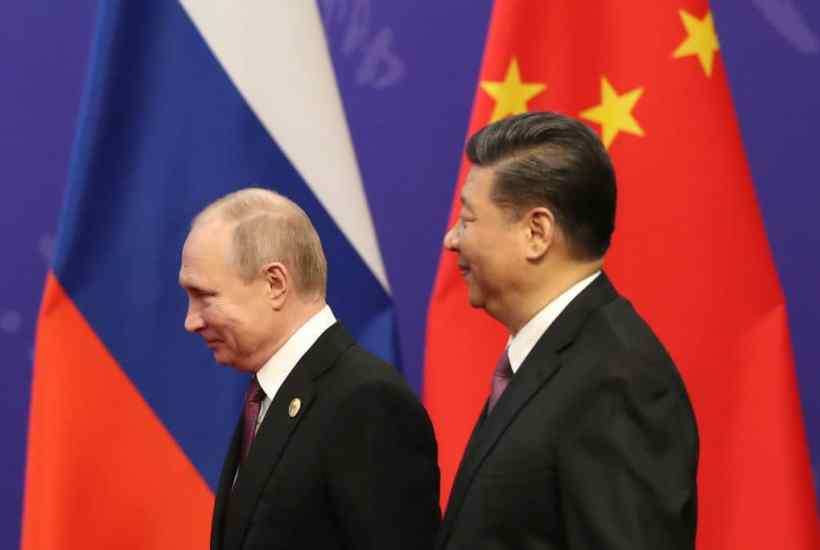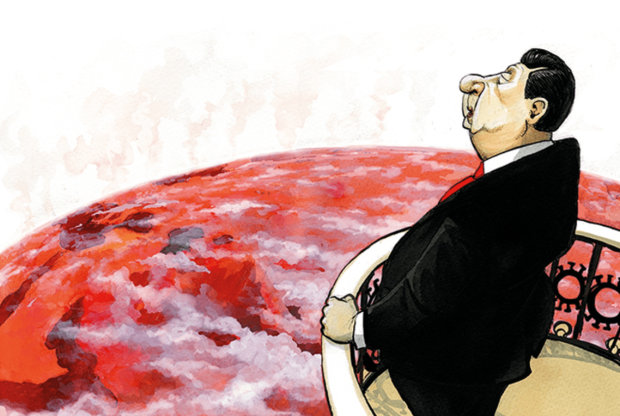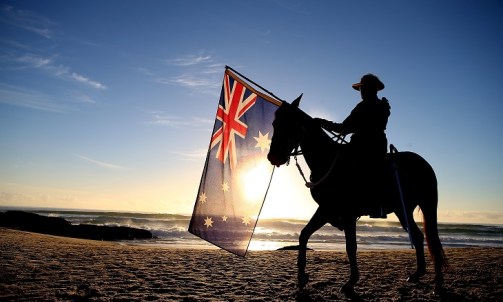If war in Ukraine is to end any time soon, the relationship between Moscow and Beijing will prove crucial. A relatively benign scenario is that China might become increasingly frustrated by the protracted war, and by the obvious incompetence and spectacular inhumanity of Putin’s military offensive. It would be rational for president Xi Jinping to tell the Russian autocrat that he has to stop. But there is a much darker, more frightening, scenario in the history books that could point to what happens next.
That precedent is the story of the development, and increasing belligerence, of Imperial Germany under Kaiser Wilhelm II before 1914. Like modern China, the German Empire was an autocracy trying to modernise, very well connected with the world economy and with a powerful export industry that would suffer from long drawn out conflict or a collapse of world trade. It was at the same time trying to find an alternative to what it perceived as an illegitimate and hypocritical British domination of the world, achieved by means of a control of finance. It wanted a land-based globalisation that would rival Britain’s sea-based trade and political network.
All these aspects are easily translated in the modern parallel of China’s increasing frustration with what it sees as the decaying US control of global finance and the world’s political and security architecture. There are quite precise echoes of the Berlin-Baghdad railway project in Xi’s Belt and Road Initiative.
But the Kaiser’s Germany was also increasingly worried about its isolation and friendlessness. It believed that with France on the west, the Russian empire in the east, and Britain across the North Sea, it was encircled, and its development restricted. It needed to look to adventures far away – in southern Africa, or in the Middle East – in order to find room to expand.
The only ally for Germany was Austria-Hungary, the Habsburg dynastic empire. The dependence on the relationship with Vienna meant that Germany could not afford to let the Habsburgs be humiliated, or subject to pressure from other European states. The consequence was that Germany needed to use any diplomatic or security crisis that involved Austria to tie the link even more closely.
When worldwide conflict erupted, it did so because of the incident that involved Austrian interests and prestige. The aftermath of the assassination of Archduke Franz Ferdinand in Sarajevo on 28 June 1914, by Serbian nationalists with pretty clear links to Serbia and the Serbian intelligence service meant that Austria’s existence as a state seemed to be at risk. Germany pushed Austrian forward with a ‘blank cheque’ on 5 July, effectively encouraging the Austrians to deliver an impossible ultimatum to Serbia and then to start with the bombardment of Belgrade.
But the Habsburg mobilisation was increasingly chaotic and feeble, and by 1917 Germany in effect took over running the Austrian war effort. The consequence of being chained to what amounted to a political corpse pushed Germany into taking one risk after another: invading Belgium and thus triggering the British intervention in the war; and then in 1917 launching unconditional submarine warfare to subdue Britain, but in effect bringing the United States into the war. The result was devastation, and in the end defeat and humiliation. That outcome was the logical outcome of a strategy of ‘friendship’ in an unfriendly world that in the end meant tying oneself to a political, economic and military dead body.
China today also feels encircled, with Japan, South Korea, Vietnam, and India suspicious or hostile. The Chinese client states are far away, Pakistan or Sri Lanka, or in Africa. There is also an acute awareness of the story of 1914, and of the grim precedent it paints. In 2014, as the hundredth anniversary of what George Kennan called the ‘seminal catastrophe’ of the twentieth century, Japanese prime minister Shinzo Abe raised the spectre – and elicited a curious reply from China, to the effect that Beijing had made a formal decision not to seek war with Japan. The discussion focused on the possibility of a direct clash in the South China Sea.
What was not debated in 2014 was the intellectual basis for a security ‘friendship’ that looks very similar to the arguments deployed in Europe before 1914. Putinism offers a coherent rationale for mixing autocracy, nationality and opposition to what Americans see as a liberal international order, and its critics denounce as hypocritical US-centred globalisation and neoliberalism.
And what also went unspoken in 2014, but now appears a terrifying possibility, is that China may be sucked into an impossible, unwinnable and destructive conflict because of a psychological dependence on maintaining a relationship with Russia, the country it now styles its ‘best friend’.
Got something to add? Join the discussion and comment below.
Get 10 issues for just $10
Subscribe to The Spectator Australia today for the next 10 magazine issues, plus full online access, for just $10.



















Comments
Don't miss out
Join the conversation with other Spectator Australia readers. Subscribe to leave a comment.
SUBSCRIBEAlready a subscriber? Log in